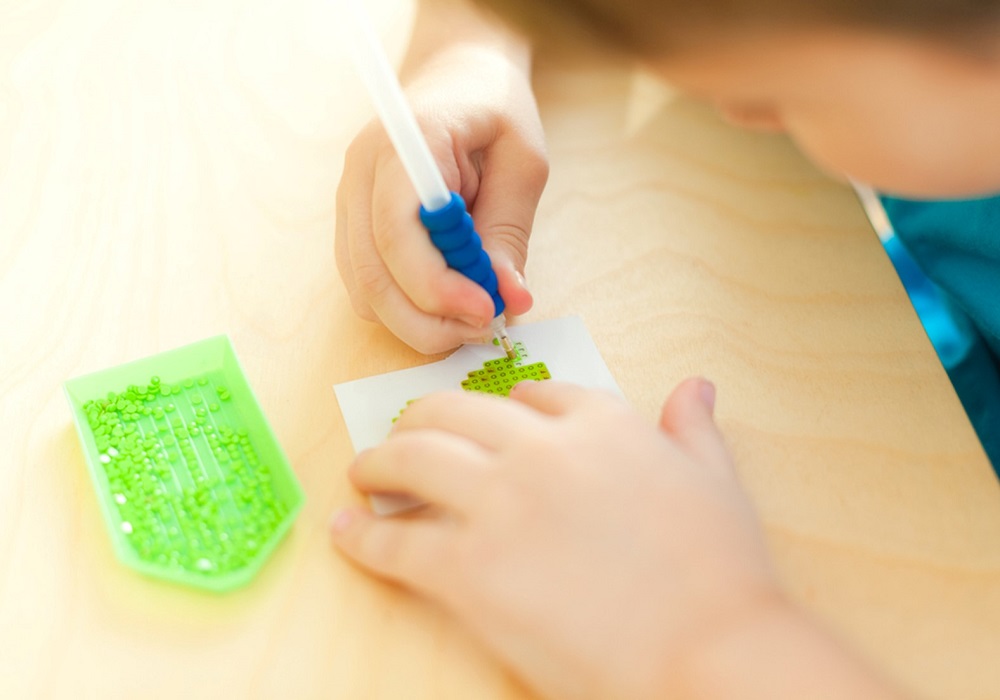Staying focused is a struggle for lots of kids. It is a frustrating problem for parents and can cause problems both at home and in school. But constantly telling your child to pay attention or concentrate can make them feel bad about themselves. Improving your child’s concentration is essential, but it’s not something that you can do through punishments, anger or frustration. Instead, parents must find creative and positive ways to help their kids stay on track.
If your child’s lack of focus is causing problems in your family, there are all sorts of potential solutions. From crafts for kids with autism that are designed to improve concentration to enhancing your child’s attention span by making mundane tasks more interesting, here are a few of our top tips for increasing kids’ attention spans.
Understanding Normal Attention Span Expectations
Kids naturally have much shorter attention spans than adults, and it’s vital to recognize this when you start feeling frustrated with your child’s lack of focus. Before you begin improving your son’s or daughter’s concentration, you need to understand what is normal for their age.
According to child development experts, children should be able to focus for about two to three minutes per year of their age. At two years old, an attention span of four to six minutes is normal. By the time a child reaches four years of age, it should increase to eight to 12 minutes, and so on.
Remember, though, that every child is different. And many factors contribute to poor concentration, such as environmental distractions and being hungry or thirsty. Average attention span expectations should be used as rough guidelines in assessing whether your child’s inattention is an issue that you should address.
With that in mind, here are some positive ways to improve your child’s focus.
1. Doing Arts and Crafts

Doing arts and crafts with your child is a great way to help them strengthen their concentration skills. Working on structured, adult-led activities helps kids disconnect from their tablets, phones and other distractions and work toward accomplishing a goal.
Not sure what type of project to work on? There are all sorts of options!
If your family hasn’t already jumped on the diamond painting bandwagon, now is a great time to check it out. Each diamond art kit comes with everything needed to create a breathtaking piece of shimmering art. And unlike many other arts and crafts, it doesn’t require any special skills. It can be done as a form of mindfulness-based art therapy, too, to help your child enter a meditative state and build stronger concentration skills.
Plenty of other projects work for boosting focus, too. Whether it’s jewelry-making, painting, knitting or just about anything else, a project that draws your child in and encourages them to work toward a goal will help increase their attention span.
2. Putting a Fun Spin on Boring Tasks
Paying attention to tedious tasks is tough — even for adults. Let’s face it — you probably have just as much trouble concentrating on balancing your checkbook or cleaning the bathroom as your child has focusing on their math homework. The human brain naturally wanders to more exciting thoughts when boredom sets in, so it’s completely normal if your child would rather talk about Minecraft than finish their homework. Or play with the long-forgotten toy they found under the bed when they’re supposed to be cleaning their room.
Unfortunately, doing things we don’t like is just a part of life. For this reason, it’s essential to teach your child how to make those mundane tasks more interesting so they can stay on track.
If your daughter or son has trouble focusing on their math homework because it’s their least favorite subject, make it more fun by having them work out the problems using finger paint on an easel and copying the work to their homework later. If they can’t stay focused while cleaning their room, make it into a scavenger hunt. Make a list of things they need to clean up or get rid of, and offer a small prize once they’ve completed the search. Get creative! There are all sorts of ways to make even the dullest tasks more enjoyable. You may even come up with some strategies for dealing with your most-loathed tasks.
4. Breaking Large Tasks Down into Smaller Steps

A child who has trouble concentrating will have difficulty staying focused on homework or another task that seems too complicated or overwhelming. If, for example, your kid’s bedroom is an absolute disaster, yelling at them to clean it up will likely lead to more frustration than anything else. Instead, break it down into smaller, more manageable steps. Ask them to pick up their books and put them away and then come ask you what to do next.
For older kids, consider making a list that details everything that needs to be done. And regardless of your child’s age, let them know that it’s okay to take a short break in between each task.
In Conclusion
Lack of focus is something that lots of kids — and adults — battle. It’s normal to have trouble concentrating on tedious or difficult tasks, and it’s important to remember that children naturally have shorter attention spans than adults. As a parent, though, you can help your son or daughter develop strong focus skills that will serve them well now and when they are older.
If you find that nothing seems to help your kid focus or their attention span is much shorter than the average for their age, talk to their pediatrician or a child psychologist. These professionals can evaluate your child and provide you with strategies for improving their concentration when other methods have failed. The sooner you seek professional guidance, the sooner you can develop a solid plan for increasing your child’s attention span.

